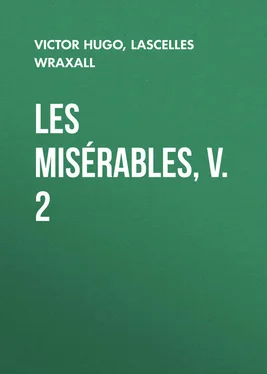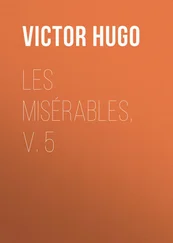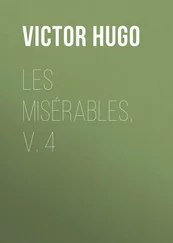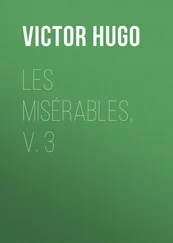Lascelles Wraxall - Les Misérables, v. 2
Здесь есть возможность читать онлайн «Lascelles Wraxall - Les Misérables, v. 2» — ознакомительный отрывок электронной книги совершенно бесплатно, а после прочтения отрывка купить полную версию. В некоторых случаях можно слушать аудио, скачать через торрент в формате fb2 и присутствует краткое содержание. Жанр: literature_19, foreign_antique, foreign_prose, на английском языке. Описание произведения, (предисловие) а так же отзывы посетителей доступны на портале библиотеки ЛибКат.
- Название:Les Misérables, v. 2
- Автор:
- Жанр:
- Год:неизвестен
- ISBN:нет данных
- Рейтинг книги:5 / 5. Голосов: 1
-
Избранное:Добавить в избранное
- Отзывы:
-
Ваша оценка:
- 100
- 1
- 2
- 3
- 4
- 5
Les Misérables, v. 2: краткое содержание, описание и аннотация
Предлагаем к чтению аннотацию, описание, краткое содержание или предисловие (зависит от того, что написал сам автор книги «Les Misérables, v. 2»). Если вы не нашли необходимую информацию о книге — напишите в комментариях, мы постараемся отыскать её.
Les Misérables, v. 2 — читать онлайн ознакомительный отрывок
Ниже представлен текст книги, разбитый по страницам. Система сохранения места последней прочитанной страницы, позволяет с удобством читать онлайн бесплатно книгу «Les Misérables, v. 2», без необходимости каждый раз заново искать на чём Вы остановились. Поставьте закладку, и сможете в любой момент перейти на страницу, на которой закончили чтение.
Интервал:
Закладка:
Cambronne answered, "Merde!"
CHAPTER XV
CAMBRONNE
Out of respect for the French reader, the grandest word that any Frenchman has ever uttered must not be repeated. Dump no sublimity into the stream of history.
At our own risk, we shall disregard this notice.
Among these giants, then, there was one Titan, Cambronne.
To speak out this word and then die, what could be more sublime than this! For to be ready to die is to die, and it was no fault of his if amid a storm of grape-shot he still lived.
The man who won the battle of Waterloo was not Napoleon routed; it was not Wellington giving ground at four o'clock, driven to despair at five; it was not Blücher, who had not fought at all: the man who won the battle of Waterloo was Cambronne.
To overwhelm with such a word the thunder-bolt which kills you, is to win the victory.
To reply thus to disaster, to say this to fate, to lay such a foundation for the lion which was to mark the spot, to hurl this reply to the night's rain, to the masked wall of Hougomont, to the sunken road of Ohain, to the delay of Grouchy, to the arrival of Blücher, to be Irony in the tomb, to struggle to his feet again after having fallen, to drown in two syllables the European coalition, to offer to kings these latrines already used by the Cæsars, to make the last of words the first, lending it the splendor of France, to end Waterloo with the jeers of the Mardi-Gras, to supplement Leonidas with Rabelais, to sum up this victory in one last word impossible to repeat, to lose ground and preserve history, after such carnage to have the laugh on his side, this is grand.
This insult to the lightning reaches the sublimity of Æschylus.
Cambronne's exclamation has the effect of an explosion. It is the bursting of a bosom with disdain; it is the surcharge of agony which breaks out. Who did conquer? Was it Wellington? No. Without Blücher he was lost. Was it Blücher? No. If Wellington had not begun, Blücher could not have finished. This Cambronne, this new-comer upon the scene, this unknown soldier, this infinitesimal atom of the war, feels that there is a lie somewhere in the disaster, which doubles its bitterness; and at the moment when he is bursting with rage, they offer him this mockery, life! How could he help bursting out? They are there, – all the kings of Europe, the conquering generals, the thundering Jupiters; they have a hundred thousand victorious soldiers, and behind the hundred thousand, a million; their cannon, the matches lighted, are yawning; they have trampled under foot the Imperial Guard and the Grand Army; they have just crushed Napoleon; only Cambronne is left; only this earthworm remains to protest. He will protest. Then he looks about for a word, as he would for a sword. Froth rises to his lips, and this froth is the word. Before this victory, stupendous but commonplace, before this victory without victors, driven to despair, he stands erect again. He yields to its weight, but he proves its nothingness; and he does more than spit upon it; and weighed down by numbers, by force, by matter, he finds for his soul one expression, "Merde!" We repeat – to say this, to do this, to find this, is to win the victory.
The spirit of the great past entered into this unknown man at this fatal moment. Cambronne finds the word of Waterloo just as Rouget de l'Isle finds the Marseillaise – by an inspiration from above. A magnetic current from the divine whirlwind passes through these men and they vibrate, and one sings the grand song, the other utters the terrible cry. This word of superhuman scorn Cambronne hurls not alone at Europe in the name of the Empire, – that would be little; he hurls it at the past in the name of the Revolution. In Cambronne is heard and is recognized the old soul of the giants. It seems as if it were Danton speaking or Kleber roaring.
To this word of Cambronne's, the English voice replied, "Fire!" The batteries blazed, the hill trembled, from all these brazen mouths leaped a last fearful belching of grape, a dense cloud of smoke rolled forth silvered in waves by the rising moon, and when the smoke cleared away, there was nothing left there. This dreaded remnant was annihilated. The four walls of the living redoubt lay low, there being hardly perceptible here and there a quivering among the corpses; and thus the French legions, greater than those of Rome, died at Mont St. Jean, on the earth drenched with rain and blood, in the gloomy wheat-fields, at the spot where now there passes at four o'clock in the morning, whistling and gayly flicking his horse with the whip, Joseph, who drives the Nivelles mail-cart.
CHAPTER XVI
QUOT LIBRAS IN DUCE
The Battle of Waterloo is an enigma as obscure for those who gained it as for him who lost it. To Napoleon it is a panic; Blücher sees nothing in it but fire; Wellington does not understand it at all. Look at the reports: the bulletins are confused; the commentaries are entangled; the latter stammer, the former stutter. Jomini divides the battle of Waterloo into four moments; Muffling cuts it into three acts; Charras, although we do not entirely agree with him in all his appreciations, has alone caught with his haughty eye the characteristic lineaments of this catastrophe of human genius contending with divine chance. All the other historians suffer from a certain bedazzlement in which they grope about. It was a flashing day; in truth, the overthrow of the military monarchy which, to the great stupor of the kings, has dragged down all kingdoms, – the downfall of strength and the rout of war.
In this event, which bears the stamp of superhuman necessity, men play but a small part. If we take Waterloo from Wellington and Blücher, does that deprive England and Germany of anything? No. Neither illustrious England nor august Germany is in question in the problem of Waterloo; for, thank Heaven! nations are great without the mournful achievements of the sword. Neither Germany nor England nor France is held in a scabbard; at this day, when Waterloo is only a clash of sabres, Germany has Goethe above Blücher, and England Byron above Wellington. A mighty dawn of ideas is peculiar to our age; and in this dawn England and Germany have their own magnificent flash. They are majestic because they think; the high level they bring to civilization is intrinsic to them; it comes from themselves and not from an accident. Any aggrandizement the 19th century may have cannot boast of Waterloo as its fountain-head; for only barbarous nations grow suddenly after a victory: it is the transient vanity of torrents swollen by a storm. Civilized nations, especially at the present day, are not elevated or debased by the good or evil fortune of a captain, and their specific weight in the human family results from something more than a battle. Their honor, dignity, enlightenment, and genius are not numbers which those gamblers, heroes, and conquerors can stake in the lottery of battles. Very often a battle lost is progress gained, and less of glory more of liberty. The drummer is silent and reason speaks; it is the game of who loses wins. Let us, then, speak of Waterloo coldly from both sides, and render to chance the things that belong to chance, and to God what is God's. What is Waterloo, – a victory? No; a great prize in the lottery. A prize won by Europe and paid by France. It was hardly worth while erecting a lion for it.
Waterloo, by the way, is the strangest encounter recorded in history; Napoleon and Wellington are not enemies, but contraries. Never did God, who delights in antitheses, produce a more striking contrast or a more extraordinary confrontation. On one side precision, foresight, geometry, prudence, a retreat assured, reserves prepared, an obstinate coolness, an imperturbable method, strategy profiting by the ground, tactics balancing battalions, carnage measured by a plumb-line, war regulated watch in hand, nothing left voluntarily to accident, old classic courage and absolute correctness. On the other side we have intuition, divination, military strangeness, superhuman instinct, a flashing glance; something that gazes like the eagle and strikes like lightning, all the mysteries of a profound mind, association with destiny; the river, the plain, the forest, and the hill summoned, and to some extent compelled, to obey, the despot going so far as even to tyrannize over the battle-field; faith in a star blended with strategic science, heightening but troubling it. Wellington was the Barême of war, Napoleon was its Michael Angelo, and this true genius was conquered by calculation. On both sides somebody was expected; and it was the exact calculator who succeeded. Napoleon waited for Grouchy, who did not come; Wellington waited for Blücher, and he came.
Читать дальшеИнтервал:
Закладка:
Похожие книги на «Les Misérables, v. 2»
Представляем Вашему вниманию похожие книги на «Les Misérables, v. 2» списком для выбора. Мы отобрали схожую по названию и смыслу литературу в надежде предоставить читателям больше вариантов отыскать новые, интересные, ещё непрочитанные произведения.
Обсуждение, отзывы о книге «Les Misérables, v. 2» и просто собственные мнения читателей. Оставьте ваши комментарии, напишите, что Вы думаете о произведении, его смысле или главных героях. Укажите что конкретно понравилось, а что нет, и почему Вы так считаете.












